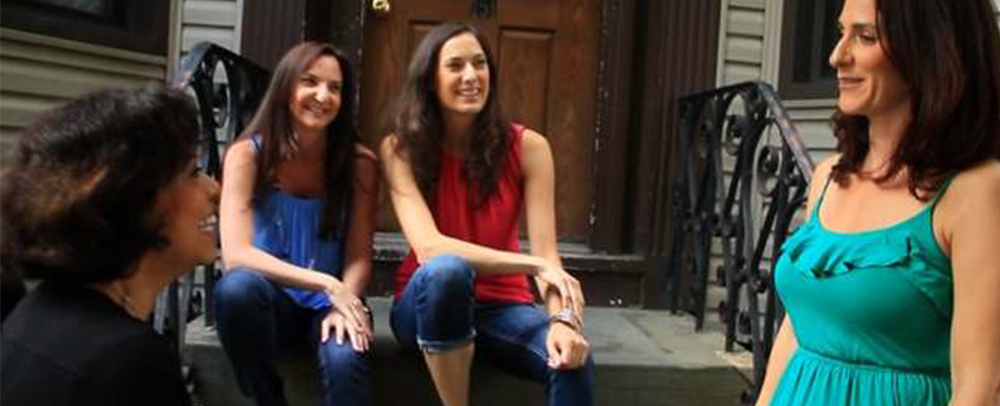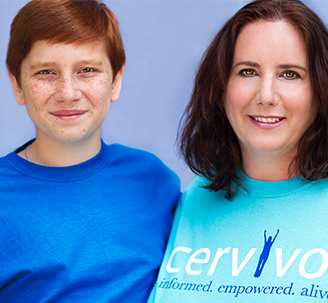Now what?
One day you may get the message: “You’re in remission!” or “You’re cured!”
It feels like you’ve waited forever to hear these words. And that means you are now a cancer survivor! After the initial feelings of excitement, you won’t be the first to find you’re feeling a bit strange, empty, moody, or unsure.

Here are some questions we as survivors have had during our lives after cancers.
Will my body ever be the same as it was?
Your body will take a long time to recover. And how it recovers can be unexpected. You may sleep longer than usual or less. You may eat more than usual or less. You may be more social or less. And just when you think you’ve got these changes under control, they may change again.
Simple things may become difficult. Things you never thought you could do suddenly are quite possible. Your memory may play tricks. You can’t remember some things. Or old memories – good and bad – may come flooding back.
You may be in pain. From surgery, radiation, chemotherapy, medication, or the memory of your pain. Your body might tingle, swell, feel numb, or just ache. Your stomach may act up at crazy times. You may look different than you used to.
Your body is different now. The trick is to find ways to gently wrap your mind around it.
Sex? After having cervical cancer???
Cancer isn’t sexy, whether you’re in a lifelong relationship or on a first date.
After cervical cancer, many women experience some or all of the following:
- Vaginal dryness
- Vaginal tightness
- Painful intercourse due to a shortened vagina
But the problem, of course, isn’t always in the plumbing. Sex really happens in the mind and heart. And when the mind and heart are wounded, desire can be hard to come by. The desire to have sex (also called libido) can be decreased due to treatment that altered your hormones.
- If you’re in a relationship, you and your partner are going to have to commit to some heavy-duty communication. Your partner may have been your caregiver for a while – it’s not easy to tenderly slide back into “normal” life as a “normal” couple. There will be fear, sadness, loneliness, and anger. You’ll both need to allow each other to voice these feelings as you move back to an intimate life.
- If you’re single, there will also be the issue of when to drop the “cancer” bomb. On a first date? Fifth date? The first time you have sex? At some vague future point in a few months or years? Do you think you can get away with never?
Cancer is tough stuff, and we’d be lying to you if we said everyone who cares about you can deal with it. Cancer tested you, and it will test them. We’d be fools to tell you not to take rejection personally. It is personal. You can be rejected for having survived a disease that terrifies everyone.
If you have to, you will leave some people behind – and find better ones. We’ve met some of the better ones. We know they’re out there.
Is it possible to have a baby after cancer?

Whether or not you can have a successful pregnancy will depend on your stage of cancer and your treatment.
If you find that your cancer treatment will prevent you from having children biologically, you can look into harvesting your eggs.
If you are able to have your eggs harvested, they can be frozen unfertilized for future insemination. Or they can be inseminated with sperm and the embryos frozen for future use. This can be an expensive process, so be sure to ask about costs and financial options.
If you have had a hysterectomy, a surrogate mother can carry your child to term when you’re ready to become a parent. This can be complicated, so be sure to research surrogacy thoroughly and know all the legal issues that surround this option.
Even if you can’t have a successful pregnancy or harvest eggs, adoption can be a wonderful option – there aren’t enough homes for children who need them.
Will my cancer come back?
It would be insane to not have the thought that the cancer might come back. There’s no way to really know.
Some women live every day in fear of their cancer returning. Others are scared only when they get a cold, cough, or any type of ache. And some women only worry while in the waiting room for follow-up checkups.
The fear of your cancer returning is certainly understandable. However, we think that as time goes by you can begin to see time as your friend. You have been cancer-free or in remission for this amount of time; and the odds are that when you wake up tomorrow that will continue to be true.
If you find your fears are taking control of your life, you could try therapy to help you handle these feelings.
Am I the only one who is scared of dying?
Fear of dying is useful. If we didn’t have it we’d all have done enough stupid things to be dead a thousand times over. But fear of living has no use at all.
Let’s be clear. We’re not advocating that you run around smiling all the time and saying everything is awesome! Everything is not always awesome. Indulge yourself: Spend a day in bed eating ice cream, watching reality television, and feeling really sorry for yourself. You’ve earned it. But don’t make it a habit.
Please join Cervivor in living!
Who can I talk to about everything?
If you need support beyond the medical nuts-and-bolts, here are some other people you can consider talking with:
- Your healthcare provider’s support network. Often a large medical practice will have people on staff who can give you more counseling than your primary caregiver. Don’t be afraid to ask if others are available.
- A professional therapist such as a psychologist, psychiatrist, counselor, or social worker
- A member of your faith community
- Family and friends. Remember, there are people who may love you very much, but who are not the best people to help you in this kind of crisis. Choose family members and friends who not only care, but can take care of themselves while they help you.
- Cervivor. That’s why we’re here.